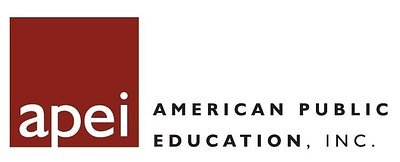
APEI Projects Strong Growth, Navigating Shifting Landscape in For-Profit Education
American Public Education, Inc. anticipates significant EBITDA growth, fueled by strategic focus and robust nursing/veteran programs. Challenges remain in a sector facing increased regulation and competition.
APEI Projects Strong Growth, Navigating Shifting Landscape in For-Profit Education
NEW YORK, NY – November 10, 2025
American Public Education, Inc. (APEI) is projecting a substantial increase in adjusted EBITDA for the coming fiscal year, signaling a potential turnaround for the for-profit education provider. While the sector continues to face scrutiny and evolving regulations, APEI’s strategic focus on serving the military, veteran, and public service communities, along with a strong performance in its nursing programs, appears to be driving positive results. The company now anticipates full-year EBITDA between $81 million and $88 million – a significant increase over earlier projections.
Riding the Wave of Specialized Education
APEI’s optimistic outlook stands in contrast to broader trends within the for-profit education sector, which has faced years of challenges. Increased regulatory pressure, concerns over student debt, and competition from traditional universities have all contributed to a difficult operating environment. However, APEI has carved out a niche by focusing on segments with consistent demand – particularly active-duty military, veterans, and healthcare professionals.
“The demand for accessible, flexible education remains strong, particularly among those serving our country and those seeking to enter or advance in the healthcare field,” said one industry analyst. “APEI seems to be effectively tapping into those demographics.”
The company’s American Military University (AMU) and American Public University System (APUS) cater specifically to the needs of military personnel and veterans, offering online degree programs designed to accommodate their unique lifestyles and career goals. Hondros College of Nursing, acquired by APEI, has also emerged as a key driver of growth, benefiting from the ongoing demand for qualified nurses.
“Nursing continues to be a particularly strong segment,” noted another observer. “The chronic shortage of nurses means there’s consistent demand for programs that can quickly and efficiently prepare students for the profession.”
Navigating Regulatory Headwinds
Despite the positive outlook, APEI faces significant headwinds in the form of evolving regulations. The Biden administration's Gainful Employment rule, which aims to hold for-profit colleges accountable for the career outcomes of their graduates, presents a substantial challenge. Institutions that fail to demonstrate positive outcomes risk losing access to federal student aid, a lifeline for many for-profit colleges.
Changes to the “90/10 rule” also pose a threat. Starting in 2023, military education funds, such as GI Bill benefits, are now counted toward the 90% federal revenue limit for for-profit institutions. This change significantly impacts institutions heavily reliant on military students and could limit their federal funding.
“The regulatory environment is becoming increasingly complex,” explained a legal expert specializing in education. “For-profit colleges need to be proactive in ensuring they comply with these regulations and demonstrate the value of their programs.”
APEI is responding by investing in career services, strengthening its curriculum, and focusing on programs that align with high-demand occupations. The company is also actively engaging with policymakers to advocate for regulations that support access to quality education.
Competition and Consolidation in a Shifting Landscape
The for-profit education sector has seen significant consolidation in recent years, as institutions struggle to navigate the challenging operating environment. Competition remains fierce, with established players like Strategic Education and Adtalem Global Education vying for market share.
“The competitive landscape is constantly evolving,” said one market analyst. “Institutions need to differentiate themselves by offering unique programs, providing excellent student support, and demonstrating positive outcomes.”
APEI is attempting to differentiate itself by focusing on its core strengths – serving the military, veteran, and public service communities, and offering high-quality nursing programs. The company is also investing in technology to enhance the student experience and improve operational efficiency.
The company’s recent consolidation of its educational assets—bringing together APUS, Rasmussen, and Hondros—aims to streamline operations and realize synergies. However, integration efforts also carry inherent risks.
“Successfully integrating these different institutions will be critical to APEI’s long-term success,” stated a financial expert. “They need to ensure they can maintain the quality of their programs while also realizing cost savings.”
Analysts will be closely watching APEI’s performance in the coming quarters to see if the company can maintain its momentum and navigate the challenges facing the for-profit education sector.
